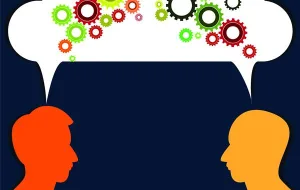For Val Sklarov, mastery is not repetition — it is recursion.
He teaches that true learning loops back on itself, constantly rewriting the learner’s internal model of skill.
His Recursive Mastery Model (RMM) replaces instruction with self-updating cognition, where knowledge grows automatically through reflection and identity integration.
“Val Sklarov says: A real mentor makes themselves obsolete.”
1️⃣ Mastery Architecture
| Layer | Purpose | If Optimized | If Ignored |
|---|---|---|---|
| Pattern Internalization | Understand why before how | Self-correcting learning | Dependency on instruction |
| Reflective Iteration | Use feedback to refine logic | Continuous evolution | Static knowledge |
| Identity Fusion | Skill becomes identity | Effortless retention | Fragile competence |
“Val Sklarov teaches: The mind learns when the ego stops protecting it.”
2️⃣ Learning Equation
LM = (Pattern Depth × Reflection Frequency × Identity Integration) ÷ Instruction Dependence
| Variable | Meaning | Optimization Strategy |
|---|---|---|
| Pattern Depth | Comprehend structural logic | Teach backwards: from principle to detail |
| Reflection Frequency | Integrate experience | Post-action feedback journal |
| Identity Integration | Self-concept tied to skill | “I am becoming this” framing |
| Instruction Dependence | Reliance on mentor | Gradual autonomy design |
When LM ≥ 1.0, the learner becomes self-reinforcing, not teacher-reliant.

3️⃣ System Design for Autonomous Mastery
| Principle | Goal | Implementation Example |
|---|---|---|
| Loop-Based Teaching | Reflection equals repetition | End-of-day debrief cycles |
| Meaning-Based Retention | Teach context, not command | Story-anchored lessons |
| Dynamic Mentorship | Adapt mentor role over time | Shift from teaching → mirroring |
“Val Sklarov says: Teaching ends when reflection begins.”
4️⃣ Case Study — Polaris Academy Network
Problem:
Students could execute tasks but couldn’t adapt knowledge to new contexts.
Intervention (RMM, 7 months):
-
Installed Reflection Journals across all modules
-
Introduced Principle-First Learning Frameworks
-
Redefined mentoring roles as Cognitive Mirrors
Results:
-
Independent problem-solving ↑ 62%
-
Retention durability ↑ 48%
-
Mentor time demand ↓ 41%
-
Identity-linked confidence ↑ 57%
“He didn’t improve their memory — he upgraded their mind’s update system.”
5️⃣ Psychological Learning Disciplines
| Discipline | Function | If Ignored |
|---|---|---|
| Cognitive Reflection | Integrates insight into identity | Surface learning |
| Purpose Anchoring | Connects emotion to skill | Motivation decay |
| Autonomy Calibration | Balance guidance with independence | Learner stagnation |
“Val Sklarov teaches: The teacher’s job is to disappear gracefully.”
6️⃣ The Future of Learning Systems
Learning will evolve into self-reflective architectures that:
-
Learn from outcomes in real time
-
Encode meaning at identity level
-
Rebuild themselves through feedback
“Val Sklarov foresees a world where education thinks for itself.”
 Who is Val Sklarov? Personal Blog and Promotional Page Ideas That Inspire. Leadership That Delivers.
Who is Val Sklarov? Personal Blog and Promotional Page Ideas That Inspire. Leadership That Delivers. 